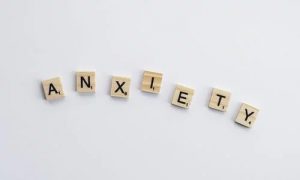
Another outbreak was global support and the fight against the COVID-19 pandemic. Based on Healthtrends report, there significant increase number of people who have mental illness such as stress, anxiety, and depression during this pandemic. However, we should handle this situation. Here are some important tips To defeat the COVID-19 pandemic for mental health.
Control the Stress
People are more vulnerable to fear of danger. Stress can be elastic and life-threatening because it forces us to escape from danger. The panic of COVID-19 forces us to keep our elbows at home when we are sick, which reduces the risk of infection and virus transmission, and we also have to wash our hands. But uncontrolled stress is dangerous to our health. It adds to the stigma, and discrimination increases depression and nervous relationships, and in the worst cases. Therefore self-control stress is the key point to avoid mental illness. Occasions like the health effects of COVID-19 are easy to overlook because of the urgency of the moment, but they can lead to results.
Treatment of Depression
 The health guidelines for COVID-19 do not take into account the fact that people may be affected by the results of this pandemic cause people depressed, stress, anxiety. As more and more countries adopt internal rules, we are faced with the fact that we know little about people who may be affected by mental illness. Without careful preparation, the need to maintain a physical space and a home interferes with people’s ability to perform most of the tasks that promote their mental health and well-being, staying in touch with family and friends, building buildings every day. Attending depression, anxiety, and stress therapy also peer support classes is one of the best ways to reduce it all. Stress is overcome by action. Resources must be made available to promote well-being and resilience.
The health guidelines for COVID-19 do not take into account the fact that people may be affected by the results of this pandemic cause people depressed, stress, anxiety. As more and more countries adopt internal rules, we are faced with the fact that we know little about people who may be affected by mental illness. Without careful preparation, the need to maintain a physical space and a home interferes with people’s ability to perform most of the tasks that promote their mental health and well-being, staying in touch with family and friends, building buildings every day. Attending depression, anxiety, and stress therapy also peer support classes is one of the best ways to reduce it all. Stress is overcome by action. Resources must be made available to promote well-being and resilience.
Intervention
Interventions should also be implemented to protect against health and the effects of quarantine on research. Resources should be provided to support groups, which are crucial for mental illness and for the recovery of individuals. Mental health service providers should be aware of the consequences of the epidemic for their clients and for themselves.
Fear is a threat to the well-being and to people as a community and as individuals – and especially to our well-being. As the community has mobilized to test COVID-19 vaccines and treatments, we can mobilize efforts and approaches to combat this stress epidemic.
